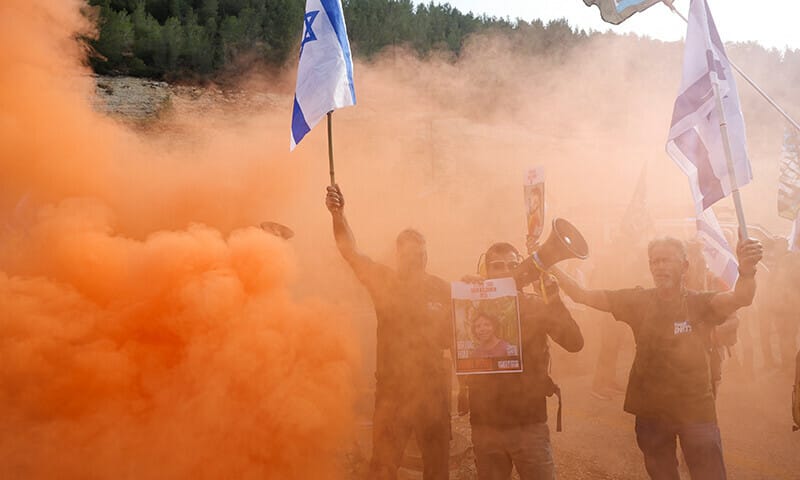What's behind resurgent fighting in north Gaza?

Source: Dawn
Author: Agence France-Presse
JERUSALEM: Israel's aggression has shifted back to parts of northern Gaza where the military said months ago the Hamas had been neutralised.
Fighters have regrouped since the army in early January announced it had "completed the dismantling of Hamas's military framework in the northern Gaza Strip", vowing to focus its war efforts on central and southern areas.
However a military spokesman said that renewed fighting in Gaza's northern town of Jabalia was "perhaps the fiercest" in more than seven months of crisis.
On Saturday the military issued new evacuation orders for residents near Gaza City, just south of Jabalia, in a sign of fresh operations there.
Where is the fighting?
Israeli troops, after weeks of relatively low intensity fighting and amid truce negotiations, on May 7 entered Gaza's crowded far-southern city of Rafah which the army has described as the last Hamas stronghold in Gaza.
Since the start of the Rafah incursion, which the UN says has already displaced some 800,000 civilians, fighting has resumed in central and northern areas of the Palestinian territory.
Heavy Israeli bombardments and street battles have been reported in the Nuseirat refugee camp in central Gaza. And in recent days, Palestinian fighters and Israeli troops have also clashed in northern Gaza's Jabalia refugee camp, Gaza City's Zeitun neighbourhood and other areas.
How is Hamas holding up?
Israel has vowed to destroy Hamas, but has so far failed to achieve its goal in the military campaign. Experts said the destruction of Gaza in relentless Israeli bombardment and fighting, and the lack of an alternative Palestinian government have driven Hamas recruitment.
"If you look at the devastation among Palestinian civilians across the board, it's quite easy to recruit these people into armed resistance," said Andreas Krieg, professor at King's College London.
According to experts, Hamas's extensive tunnel network, estimated to run more than 500 kilometres, has not been significantly damaged, and the group has stockpiles of its home-made "Yassin 105" anti-tank missiles which are regularly fired at Israeli troops. Hamas fighters also benefit from extensive territorial knowledge, said Michael Wahid Hanna, an analyst at the International Crisis Group.
"They're an embedded foe fighting on their home territory, and that creates real resilience," he said.
Why has Israel struggled to keep control?
Israel has targeted senior Hamas commanders, but experts say the decentralised nature of the group's command structures makes it less vulnerable to leadership vacuums.
"That's the whole problem with Israeli approaches -- they're always looking to go for the leaders. But in reality, it's a network and networks don't fall apart," said Krieg.
Israel has one of the most powerful militaries in the world, with its defence expenditure reaching $27.5 billion last year, according to the Stockholm International Peace Research Institute.
It has also deployed cutting edge technology including AI in its war against Hamas, but experts said political infighting in Israel's war cabinet has hurt its military strategy.
"You can't achieve sustainable military objectives in the absence of a political strategy for the day after," said Bilal Y. Saab, an associate fellow at the Chatham House think tank.
How damaged is Hamas?
The group, which has been in power in Gaza since 2007, was estimated to have about 30,000 fighters before October 7. It's unclear how many Hamas fighters have been killed in the war. The Gaza health ministry does not specify how many fighters are among the fatalities it reports.
Israeli Prime Minister Benjamin Netanyahu said this month that "14,000 fighters were killed". Experts however say the group has probably been able to quickly replenish its ranks.
"For every Hamas member that they kill, the Israelis are providing recruitment potential for four, because of the anger generated by the many more civilians the IDF (army) is killing," said H. A. Hellyer, security expert at the Carnegie Endowment for International Peace and the Royal United Services Institute. Experts agree that Hamas will be difficult to eradicate completely.



